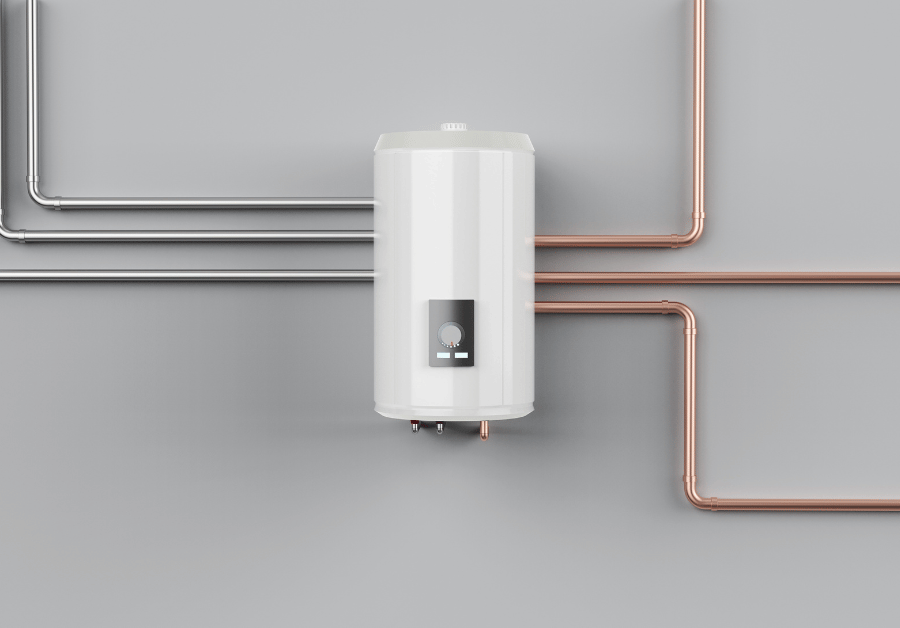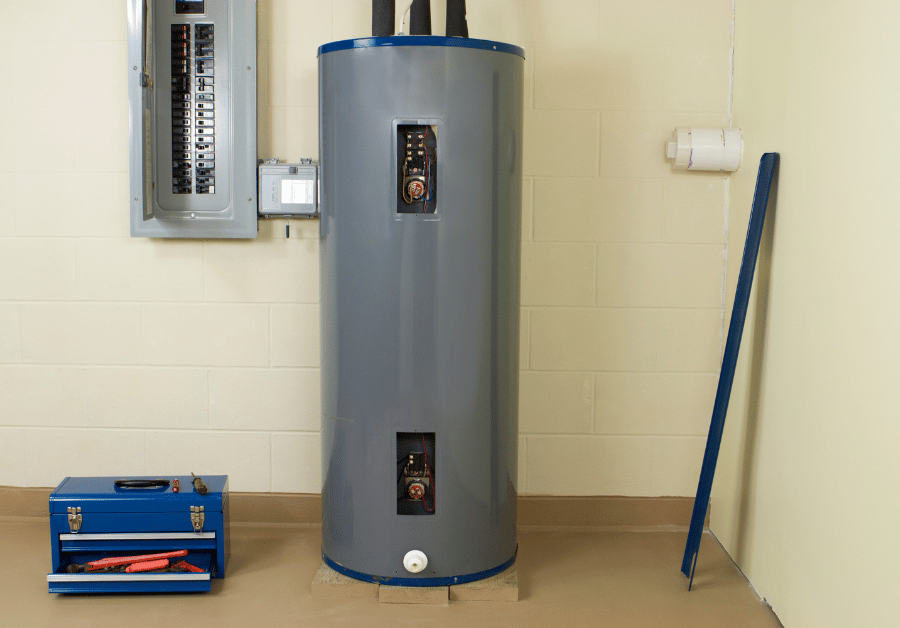Electric Hot Water Services: Your Expert Guide for Australian Homes
Are you looking for reliable and efficient electric hot water services in Australia? Whether you're in Melbourne, Sydney, Brisbane, Perth, Adelaide, or Hobart, choosing the right hot water system is crucial for your comfort and budget. This comprehensive guide will cover everything you need to know, from different types of electric hot water systems to installation, maintenance, and energy efficiency tips. We'll also explore alternative heating systems, such as heat pump systems, and provide guidance on finding the best professionals for your needs. If you’re looking for hot water system discounts or want to compare your options, Get 3 Quote can help you find the right solution for your home.
Why Choose Electric Hot Water Services?

Electric hot water systems have been a staple in Australian homes for decades. They are known for their affordability, ease of installation, and reliable performance. While other options like gas and solar are available, electric systems remain a popular choice due to their upfront cost and availability. However, it's crucial to understand the different types of electric systems to make an informed decision.
Types of Electric Hot Water Systems
There are two primary types of electric hot water systems:
- Electric Storage Hot Water Systems: These are the most common type. They consist of an insulated tank that heats and stores water, ready for use. The size of the tank determines how much hot water is available at any given time.
- Electric Instantaneous (Tankless) Hot Water Systems: Also known as continuous flow systems, these heat water on demand. They don't store water, which can save energy but may have limitations on the flow rate.
Electric Storage Hot Water Systems: A Detailed Look
Electric storage hot water systems are the workhorses of many Australian homes. They are simple, reliable, and relatively inexpensive to install. However, they can be less energy-efficient compared to instantaneous systems, especially if the tank is not well-insulated.
How Electric Storage Systems Work
These systems use an electric element, typically located at the bottom of the tank, to heat the water. A thermostat controls the element, maintaining the water at a set temperature. When you turn on a hot water tap, hot water is drawn from the top of the tank, and cold water enters at the bottom to be heated.
Advantages of Electric Storage Systems
- Lower Upfront Cost: Generally cheaper to purchase and install compared to other types of hot water systems.
- Simple Installation: Easier to install, which can save on installation costs.
- Reliable: Proven technology with a long track record of reliability.
Disadvantages of Electric Storage Systems
- Energy Consumption: Can consume more energy than instantaneous systems, especially if not properly insulated.
- Limited Hot Water: The amount of hot water is limited to the tank's capacity.
- Standby Heat Loss: Heat can be lost from the tank, even when no hot water is being used.
Electric Instantaneous (Tankless) Hot Water Systems: On-Demand Heating
Electric instantaneous hot water systems offer a different approach to heating water. They heat water only when you need it, eliminating the need for a storage tank. This can result in significant energy savings, but it also comes with its own set of considerations.
How Electric Instantaneous Systems Work
When you turn on a hot water tap, cold water flows through a heat exchanger inside the unit. A powerful electric element heats the water as it passes through, providing hot water on demand. Once you turn off the tap, the heating stops.
Advantages of Electric Instantaneous Systems
- Energy Efficiency: Heats water only when needed, reducing energy waste.
- Unlimited Hot Water: As long as the unit can keep up with the flow rate, you'll have a continuous supply of hot water.
- Space Saving: No bulky tank required, saving valuable space.
Disadvantages of Electric Instantaneous Systems
- Higher Upfront Cost: More expensive to purchase and install compared to storage systems.
- Higher Electricity Demand: Requires a significant amount of electricity to heat water quickly, which may require electrical upgrades.
- Flow Rate Limitations: May struggle to supply hot water to multiple outlets simultaneously.
Choosing the Right Electric Hot Water System for Your Needs
Selecting the best electric hot water system depends on several factors, including your household size, hot water usage, budget, and energy efficiency goals. Here's a step-by-step guide to help you make the right decision:
- Assess Your Hot Water Needs: How many people live in your home? How much hot water do you typically use each day? This will help you determine the appropriate tank size for a storage system or the required flow rate for an instantaneous system.
- Consider Your Budget: Factor in the upfront cost of the system, installation costs, and ongoing energy costs. While instantaneous systems may save energy, their higher upfront cost may not be justified for low hot water users.
- Evaluate Your Electrical Capacity: Instantaneous systems require a significant amount of electricity. Ensure your home's electrical system can handle the load.
- Think About Space: If space is limited, an instantaneous system may be the better choice.
- Check for Rebates and Incentives: Government rebates and incentives can help offset the cost of energy-efficient hot water systems.
Energy Efficiency Tips for Electric Hot Water Services
Maximizing energy efficiency is crucial for reducing your electricity bills and minimizing your environmental impact. Here are some practical tips for electric hot water services:
- Insulate Your Hot Water Tank: Adding insulation to your hot water tank can reduce standby heat loss.
- Lower the Thermostat: Reducing the thermostat temperature to 60°C can save energy without sacrificing comfort.
- Install Low-Flow Showerheads and Taps: These reduce water consumption, which also reduces the amount of energy needed to heat the water.
- Fix Leaks Promptly: Even small leaks can waste a significant amount of water and energy over time.
- Use Off-Peak Electricity: If available, use off-peak electricity tariffs to heat water during cheaper periods.
- Consider a Timer: Install a timer to heat water only when you need it, especially if you have a storage system.
Heat Pump Hot Water Systems: An Energy-Efficient Alternative
Heat pump hot water systems are an increasingly popular alternative to traditional electric systems. They use a refrigeration cycle to extract heat from the air and transfer it to the water, making them significantly more energy-efficient.
How Heat Pump Systems Work
Heat pump systems work similarly to refrigerators, but in reverse. They use a refrigerant to absorb heat from the surrounding air. The refrigerant is then compressed, which increases its temperature. The hot refrigerant passes through a heat exchanger, transferring the heat to the water in the tank.
Advantages of Heat Pump Systems
- High Energy Efficiency: Can be up to three times more energy-efficient than traditional electric systems.
- Reduced Electricity Bills: Lower energy consumption translates to lower electricity bills.
- Environmentally Friendly: Reduces greenhouse gas emissions.
- Rebates and Incentives: Often eligible for government rebates and incentives.
Disadvantages of Heat Pump Systems
- Higher Upfront Cost: More expensive to purchase and install compared to traditional electric systems.
- Noise: Can produce some noise during operation.
- Performance in Cold Climates: Efficiency may decrease in very cold climates.
Installation and Maintenance of Electric Hot Water Services
Proper installation and regular maintenance are essential for ensuring the longevity and efficiency of your electric hot water services. Here's what you need to know:
Installation
- Hire a Licensed Plumber: Always use a licensed plumber for installation to ensure the system is installed correctly and safely.
- Follow Manufacturer's Instructions: Adhere to the manufacturer's instructions for installation.
- Check for Compliance: Ensure the installation complies with local building codes and regulations.
Maintenance
- Annual Inspections: Schedule annual inspections by a licensed plumber to check for leaks, corrosion, and other potential problems.
- Flush the Tank: Periodically flush the tank to remove sediment buildup, which can reduce efficiency and damage the system.
- Check the Anode Rod: The anode rod protects the tank from corrosion. Replace it every few years, as needed.
- Inspect the Temperature and Pressure Relief Valve: Ensure the valve is functioning correctly to prevent pressure buildup.
Common Problems with Electric Hot Water Services
Even with proper maintenance, electric hot water systems can experience problems. Here are some common issues and how to address them:
- No Hot Water: Check the circuit breaker, thermostat, and heating element.
- Insufficient Hot Water: May be due to a faulty thermostat, sediment buildup, or an undersized tank.
- Leaking Tank: Indicates corrosion or damage. Requires immediate repair or replacement.
- Noisy Operation: Can be caused by sediment buildup or a faulty heating element.
- Rusty Water: Indicates corrosion inside the tank.
Finding Reliable Electric Hot Water Services Professionals
When you need installation, repairs, or maintenance for your electric hot water services, it's crucial to find reliable and experienced professionals. Here's how to find the best:
- Check for Licensing: Ensure the plumber is licensed and insured.
- Read Reviews: Look for online reviews and testimonials from previous customers.
- Ask for Referrals: Get referrals from friends, family, or neighbors.
- Get Multiple Quotes: Obtain quotes from several professionals to compare prices and services.
- Verify Experience: Choose a professional with experience in electric hot water systems.
Electric Hot Water System Discounts and Rebates in Australia
Taking advantage of available discounts and rebates can significantly reduce the cost of your electric hot water services. Here's how to find them:
- Government Rebates: Check with your state or territory government for available rebates and incentives. For example, Sustainability Victoria offers various energy upgrades.
- Energy Retailer Discounts: Some energy retailers offer discounts on energy-efficient hot water systems.
- Manufacturer Promotions: Keep an eye out for promotions and discounts from hot water system manufacturers.
The Future of Hot Water Heating: Sustainable Solutions
As Australia moves towards a more sustainable future, the demand for energy-efficient hot water solutions is growing. Heat pump hot water systems and solar thermal systems are becoming increasingly popular. These systems offer significant energy savings and reduce greenhouse gas emissions.
Solar Thermal Systems
Solar thermal systems use solar panels to heat water directly. They are highly efficient and environmentally friendly, but their performance depends on sunlight availability.
The Role of Government and Industry
The Australian government and industry are playing a crucial role in promoting sustainable hot water solutions. Initiatives like the Victorian Energy Upgrades program and the Energy Efficiency Council's roadmap for heat pumps are helping to drive the adoption of energy-efficient technologies.
Conclusion: Making the Right Choice for Your Home
Choosing the right electric hot water services for your home is a significant decision. By understanding the different types of systems, considering your needs and budget, and taking advantage of energy efficiency tips and available discounts, you can make an informed choice that will provide you with reliable and cost-effective hot water for years to come. Whether you're in Melbourne, Sydney, Brisbane, Perth, Adelaide, or Hobart, Get 3 Quote can help you find trusted local professionals to assist with your hot water needs. Compare quotes from verified professionals today!
Ready to find the best electric hot water services for your home? Get 3 Free Quotes Now!
For more click here
